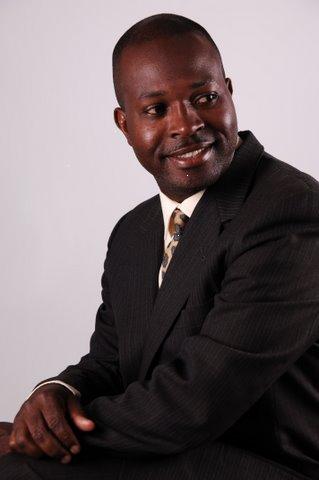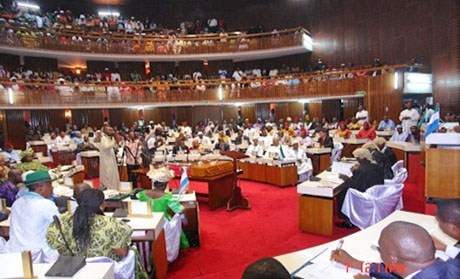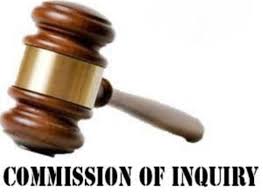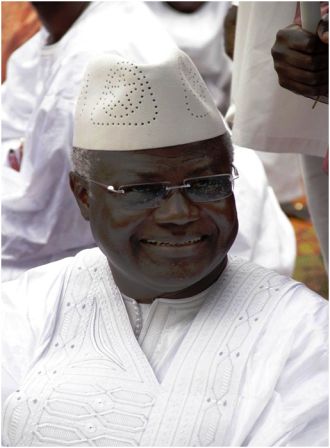Is cabinet shake up a political spectacle in Sierra Leone?
As Sierra Leoneans anxiously brace for the next cabinet shake up of President Koroma’s second term, many are thinking about its historical coincidence to former President Joseph Saidu Momoh who reshuffled his cabinet by the end of November, 1988 and leading to the removal of a number of government Ministers. It seems both President Momoh and President Koroma have star crossed political similarities in relationship to the timing of events and its national implications. Both statesmen are northerners from the same ruling APC party and impressively idolized Siaka Stevens. (Photo: Mohamed C Bah, author)
In early January of 1988 – the Deputy Minister of Development and Economic Planning under President Joseph S. Momoh was forced to resign with five other government officials who were later indicted for fraud. Another Momoh’s government reshuffle led to the appointment of a new Finance Minister with the creation of the Ministry for Rural Development and Social Services. Earlier this year on January 4, 2013, President Koroma appointed a new Finance and Economic Development Minister, Dr. Kaifala Marah – a move seen by many as President’s Koroma’s attempt to surround himself with serious technocrats who are capable of running the affairs of government.
President Koroma also recently removed his Minister of Works and Infrastructure Almamy P. Koroma together with the Director of Sierra Leone Road Authority, Munda Rogers – another political strategy of responding to the growing frustrations of civil society and the people about the deplorable road conditions in the country. While President’s Koroma’s first term cabinet reshuffle was highlighted with reassignments of Ministers to different posts, Joseph Momoh was more agile and discipline in removing corrupt Ministers from his government. However, President Koroma deserved some accolades for appointing the disable radio veteran, Mustapha Bai Attila as Deputy Minister of Social Welfare, Gender and Children Affairs.
Now, with the expected Cabinet shake up, one wonders if cabinet reshuffling is merely a “potent stick” to eliminate those who have become liabilities to the art of good governance or purposely a show of Presidential power. With almost fifty Ministers and deputy ministers in President Koroma’s government, reshuffling maybe an effort to eliminate corrupt – infested Ministers and promoting the political climate of responsible government. But how true can this premise be in the light of the pending cabinet shake up? With Sierra Leone becoming the most corrupt nation in the world, what happens to President’s Koroma’s doctrine of no sacred cows?
In what was former President Tejan Kabba’s first cabinet shake up in three years since re- election in Sepetember, 2005, he fired three ministers for the same reasons as Joseph Momoh. Subsequently in his Presidency, he replaced Ministers with those he sought may helped sail the colossal ship of good governance against the ever rising tide of corruption and mismanagement. Also, President Kabba’s second cabinet government in exile – November 21, 1996 was one of the most downsized governments in history – 30 Ministers and Deputy Ministers with more diverse professional citizens drawn from all tribes and regions of Sierra Leone. Will President Koroma follow such admirable trend?
Certainly, President Koroma’s administration has more Ministers than any President in modern history. He deliberately continues to play the politics of “patronage and compensation” – a troubling concept not base on merits and qualifications but mostly who is connected to him as loyalists or party sympathizers. Above all, his cabinet Ministers, government officials including Ambassadors, like previous governments, are not properly vetted to determine their eligibility, record of service and character of patriotism. But the democratic process like vetting a candidate’s background helps our institutions to prevent the waste of government resources on appointees who may not be up for the job.
Today, many concern citizens are eager to know whether the November 29, 2013 ambassadorial appointments of President Koroma’s administration was merely a political spectacle or a serious attempt to restructure Sierra Leone’s diplomatic team abroad. While some appointments offers assurances of the President’s commitment to improving diplomatic ties with friendly countries, the former RUF junta, Mr. Omrely Golley and former Inspector General of Police Brima Accha Kamara in particular raises serious ethical and moral questions about their past records, professional competency and personal credibility as public servants. Both citizens violated public trust in the past and should never hold any office of national service.
The President may have exercised his sole constitutional prerogative powers accorded to him by the constitution, but many Sierra Leoneans are dismayed with such judgmental blunders by selecting and appointing some of these nominees who should never represent the interest of the people of Sierra Leone. And to show a pattern of oblivion to someone’s past history is grossly a poor decision making debacle which has huge repercussion on significant national matters. We hold our President to the highest standard and his appointments should reflect his good will towards promoting the national integrity of Sierra Leone.
Indeed, the Sierra Leone Parliament over the years remains a rubber stamp body – too lack luster to block nominees as will be expected in the case of the newly appointed Ambassadors – Omrely Golley and Brima Acha Kamara from confirmation to their designated countries of appointments. The President has been more like a Pharaoh forcing down his beleaguered choices against the wishes of parliamentarians and the people of Sierra Leone. Such mistakes, in the long run, will cost the nation huge political and economic implications – both in terms of performance, reputation and quality of service to the people.
And for God sake, a country with six million people doesn’t need fifty (50) Ministers in government. That is too big to fail with too many competitive interests to focus in promoting national policies and agendas – and too many duplicating functions that create unnecessary delay of public delivery services with Ministerial heads that are not even familiar with their assignments. For instance, why appoint a Minister of Mines and Mineral Resources to a position where he has no mining and geological experiences or Minister of Land and Country planning who has no urban or rural planning experiences. This conduct defies every professional and institutional merit of good judgments.
Nonetheless, President Koroma has the unique opportunity to resist the temptation of the traditional politics of selecting friends and party sympathizers to cabinet posts. He needs to streamline his cabinet team to reflect the economic realities of operating these broken ministries as well as looking at the qualifications and experiences of his appointees. He must work to create a smaller, more viable and efficient cabinet structure that is capable of solving problems – having the ability to delegate responsibility and for his government to coordinate more efficiently.
Members of his cabinet must have the keen sense of direction and strategic focus to overcoming the barriers of communication, the unnecessary internal strife within the Ministries and be more result-oriented. And prospective cabinet Ministers must be people- centered and morally competent to fight against the insidious pattern of corruption in government Ministries. Also, the President needs the appropriate advice from people who are knowledgeable and have more depth of credible experience to solving national problems. His cabinet reshuffling should provide inclusive road maps for minority tribes to be appointed to key government positions.
While he has made commendable strides in appointing few women and some disable citizens to position of public trust, he must accelerate this effort by selecting more women and more people of disability to high profile positions. Women and the disable people have the intrinsic values of guidance and tolerance in the decision making process and share many life learning experiences that helps them to be better decision makers. The President should avoid the obsession of appointing cronies and regional affiliates to cabinet posts – values that are inconsistent with democratic principles and poor characteristics that will diminishes his legacy and personal integrity.
Thus, Cabinet reshuffle should be an opportunity for the President to pick a good team that will judiciously serve the people of Sierra Leone. It should not be a political spectacle that leads to embattle choices who ultimately becomes a bad deal for Sierra Leone. Sierra Leoneans needs assurances that such actions bring stability, development and national progress. If the President makes choices on the variations of cronyism, regionalism and tribalism – no one expects such outcome will serve any useful national purpose. It will be nothing but a political misstep that will illuminate the skylines of Freetown, Sierra Leone, but fades away after the intense political firework.
May our nation continue to be the realm of the free!
By M C Bah Atlanta, GA-USA
Stay with Sierra Express Media, for your trusted place in news!
© 2013, https:. All rights reserved.






